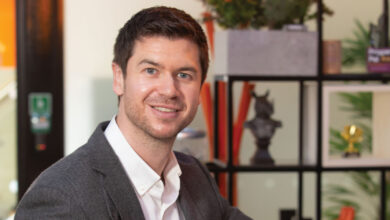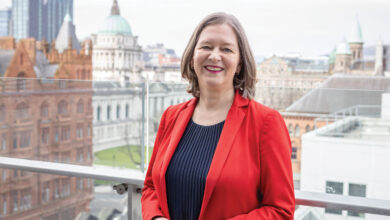What Derry means to me
The Maiden City scales the divide and means all things to all people. Rich in history, it saw the siege in 1689 but also the birth of the civil rights movement in the 1960s.
Three figures acutely associated with the walled city tell agendaNi what it means to them.
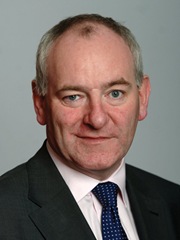 Mark Durkan
Mark Durkan
“Yes!” is the greeting in Derry. So it is a positive city.
A border city Janus-like, in Brien Friel’s phrase. Looking into two states and wanting better for and from them both together. Also able to look both backward and forward and both inward and outward.
For a small city, denied much, it has always had natural cultural riches. Great traditions in singing, dancing and other performing arts – well encouraged by the feisty Feis Mothers.
We had a university denied but are still university-destined and determined.
Derry endured the suffocating shock of Bloody Sunday and suffered other atrocities. But it still nurtured power-sharing through the strains and divisions of bad times. It was blessed by good leadership, not least pastoral leadership which is too often unacknowledged.
The IRA may have bombed the heart out of the city centre, but Derry never lost its good civic heart.
Derry’s people show resilience and rapport. Not just bearing their lot with good humour, but seeking change with a spirit which underpins so many examples of its strong self-help ethos.
It is a place of character and characters. Whether its citizens call it Derry or Londonderry we all share a special sense of pride in our people and place.
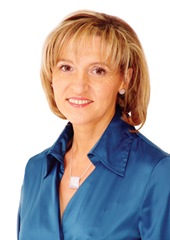 Martina Anderson
Martina Anderson
Derry is home in every sense of the word. Obviously it is my family home but Derry has often been described as being akin to a big village because of its intimacy and friendliness which makes visitors think that everyone knows each other. Despite the adversity faced by the people of Derry since partition – discrimination in housing, jobs and gerrymander – their spirit was never broken and their humour never dampened. The people are the heart and soul of Derry.
In the great scheme of things, Derry is a tiny city but it has always punched above its weight and produced leaders in every field.
In music, you had people like Josef Locke, Dana, Gay McIntyre, the Undertones, Phil Coulter and now Nadine Coyle flying the flag for Derry. Actresses like Roma Downey, Bronagh Gallagher and Amanda Burton. Writers like Seamus Deane, Nell McCafferty, Jennifer Johnston and Susan McKay.
Sportspeople like Liam Ball, Charlie Nash, Tom McGuinness, Fay and Liam Coyle and now John Duddy, Darren Gibson, Paddy McCourt and Shane Duffy.
And of course we never had any shortage of politicians. Older people will remember Hugh and Eddie McAteer and Stephen McGonagle and of course we have Martin McGuinness and John Hume, just two of the statesmen to emerge from Derry.
But for every Derry person who went on to become a household name, there are countless unsung heroes quietly getting on with rearing their families, building their communities and changing their own wee bit of history. They are what Derry means to me.
Without them, Derry would be just like any other city. With them, it is somewhere different – somewhere special.
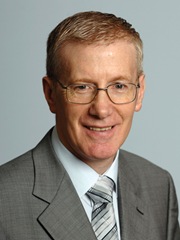 Gregory Campbell
Gregory Campbell
Londonderry has a proud and distinguished cultural tradition that stands strongly alongside any other city in the United Kingdom.
Londonderry was one of the first planned cities in the nation. This is reflected in the architecture of St Columb’s Cathedral, one of the focal points for the annual Maiden City Festival: the tablet inside the cathedral porch reads: “If stones could speake, then London’s prayse should sound, Who built this church and cittie from the grounde”.
The uniquely British character of the architecture and history of the city has been undiminished over the years. Of course, growing up in Londonderry history was never far from your front door. I was acutely aware from a young age of the key role that the city and its iconic walls played in the defeat of absolutism and arbitrary power: that is why I joined the Apprentice Boys.
I feel a strong sense of pride in the achievement of people from Londonderry who secured the Williamite Settlement and with it civil and religious liberty. In fact, many would say if the siege outcome had been different the entire development of parliamentary democracy would have been stunted and held back.
Londonderry can fairly claim to be the place where modern liberal democracy was conceived. In the past attempts to celebrate and commemorate this achievement were faced with hostility, but I am pleased that is no longer the case and the Maiden City Festival has become an enormously positive event for the city.
In more recent times the city has given the world such culturally significant figures as Josef Locke, Phil Coulter, Richard Doherty and dare I say it, Nadine Coyle! In seeking to be the United Kingdom City of Culture, I am certain we have a strong case to make and am hopeful for success.


